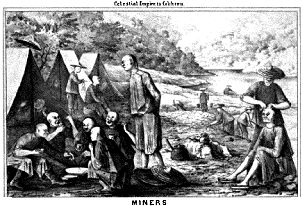 |
| Amy, Josh, Matt, Cait and Ryan |
I am updating this post. I found Bridgida Curley today at the Family History Library in SLC with her brothers, sisters,mom and dad.
Her dad was:
Michaelis Curley
and her mom was:
Mariae Cunniff
Children of MICHAELIS CURLEY and MARIAE CUNNIFF are:
i. BRIGIDA3 CURLEY, b. 23 Oct 1830, St. Peter's, Athlone and Drum, Roscommon, Ireland; d. Ireland.
ii. MICHAEL CURLEY, b. 26 Jan 1833, Roscommon, Ireland; m. MARIA HUGHES; b. Ireland.
iii. MARIA CURLEY, b. 04 Aug 1835, Roscommon, Ireland.
3. iv. (BRIDGIDA DELIA CURLEY), b. 14 Jan 1838, St. Peter's, Athlone and Drum, Roscommon, Ireland; d. 23 Aug 1874, Stockton, San Joaquin, CA., USA.
4. v. CATHARINA CURLEY, b. 18 Oct 1846, Drum, Roscommon, Ireland.
vi. EDWARDUS CURLEY, b. 19 Aug 1849, St. Peter's, Athlone and Drum, Roscommon, Ireland.
Bridgida Delia Curley was born in 1837 or 1838 and was christened on
14 Jan 1838 at St. Peter's, Athlone and Drum, Roscommon, Ireland.
How old were the babies back then when their parents had them christened?
The sweet lady that helped me told me that in Ireland Bridget or Bridgida and Delia were like the same.
I had never heard that before, have you?
I had a visitor to my blog from Dublin yesterday.
"If you come back today maybe you can tell me if that is true." Please.
So BYU TV I think I'm OK for now thanks. ;)
No....on second thought...how did Bridgida Delia Curley get to America?
Did the English send her family because they were in the Workhouse (Poorhouse it was called in Ireland) or did they have the money to send themselves? If so where are the records for that?
The family story was that Brigida Delia had been an indentured servant. If so where are the
records for that?
With all of this in mind I am reconsidering your offer.
And the answer is HELP!! (Pretty Please)
To Whom It May Concern,
I would like to know more about my GG grandmother Bridget Delia Curley's family. She was born in Athlone Westmeath, Ireland in 1834-1837. I don't know who her mother and father are. But I have a wonderful story written by her daughter Kate Emily Pillsbury.
My family was one of the first white settlers in California. Kate's father and Delia's husband was Daniel Hackett Pillsbury. I have Aunt Kate's story on my blog and I feel like I am in Railroad Flat and San Andreas, California when I read the story. I think Aunt Kate was an amazing women. Her father obviously adored her and my Great grandfather, George Washington Pillsbury, was raised by her from the time he was six after her mother died. I talked to Kates granddaughter and she said that Grandpa Daniel Hackett also taught school. So he didn't just mine or supply water to the minors. My dad, Arthur Wayne Pillsbury was raised in West Point when a baby but mostly in Sutter Creek from the time he was three on to his graduation from Amador Hi and then he went to Cal. Berkley until WWII called and he joined the Air Force. I loved it in Sutter Creek. It is magical to me.
About 5 years ago dad took me to the Pillsbury ranch in Railroad Flat, CA. where his father, George William Pillsbury was born and where his grandfather George Washington Pillsbury died.
Oh how I wish I could find out more about Bridget Delia Curley the little Catholic girl born in Ireland who was named after Saint Bridget. She came to America during The Famine.
If you can help me please let me know, I'll be waiting.
Sincerely,
Grammy T.
PS: I wrote this letter to the
generations project on BYUTV.
I hope they will help me find my
Curley family.








